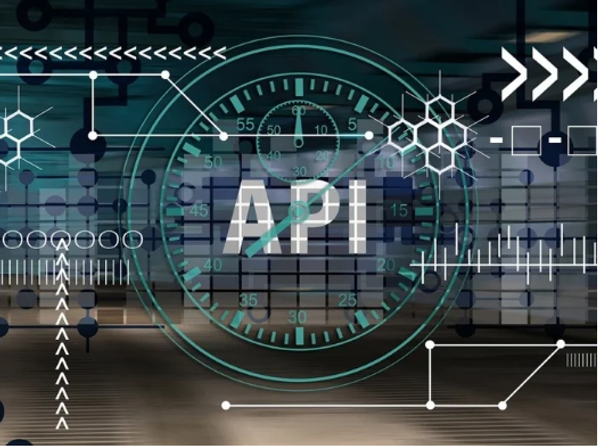Why Financial Inclusion Matters
Financial inclusion is one of the most important things that can happen to a society. It means enabling access to financial services to those who were previously denied access to them. It is not just about giving people access to banking services, but it is ultimately about giving them more control over their lives, providing them with more opportunities, and helping them better prepare for uncertainties and risk. By giving people access to financial services, they can make better financial decisions, better manage their liabilities and obligations, borrow money for emergencies, save for retirement, provide education for their children, and achieve their dreams and aspirations.
Besides social benefits, financial inclusion also matters for economic development. It improves the quality of life for everyone. It enables transparency, reduces graft and corruption, and reduces poverty. It helps grow economies by creating business efficiency and improved resiliency. In fact, the UN has identified financial inclusion as being a key enabler in their 2030 Sustainable Development Goals. it is featured as a key element in eight of the seventeen goals which includes eliminating poverty, achieving food security, promoting equality, achieving good health and well-being. These goals for sustainable development according to the UN, would be impossible without access to affordable financial services.
How APIs Provide the Foundation for Financial Inclusion to Happen
APIs provide a new way of accessing financial services. Financial services were traditionally provided by banks and other traditional financial institutions. It used to be that these services were costly to develop and operate, and often saddled with inefficiencies, making it economically infeasible to bring and offer to the lowest economic segments of society.
However, with technology, this is quickly changing. Technologies such as mobile devices, cloud computing, robotic process automation, and artificial intelligence have transformed how these services are being conceived, managed, and delivered. The glue that links these technologies together are something called “APIs” or “Application Programming Interfaces.” APIs are really just a set of tools that allow for systems to connect with one other easily: to be able to exchange data or orchestrate processes or workflows. With APIs, these data exchange methods, processes and workflows can be done in an automated way, at much less cost, In addition, they provide better consumer experiences, enabling faster and more engaging transactions than traditional means. A good example would be how payments are done today. In the last few months, you have probably shopped or ordered food online. It is likely that you have paid for these transactions via one of the various electronic, contactless payment methods out there—such as an e-wallet, online bank transfer, or a credit card. All of these are made possible by APIs.
The Rise of the API Economy
The API economy basically refers to the use of APIs to enable innovation and new business models. By making data and services more accessible and flexible, new products and services can be quickly brought to market. By using APIs, new business can launch and rapidly scale up in ways that were simply not possible before. Such is the case of Twilio which is revolutionizing telecommunications by allowing developers to create dynamic new SMS and voice-based services in the cloud.
Also traditional businesses can benefit. By allowing third parties to access their data and services, they can transform into platforms, that allow others to build upon and use it. This can enable even traditional businesses to grow quickly and realize new sources of revenue and growth. Take for example airline reservation systems, which have opened up their data to allow more efficient travel and booking services to develop around them.
The API Economy in Banking and Finance
With the use of APIs, and the rise of something called “Open Banking”, banks and traditional financial institutions have started opening up their data as well to third-party developers. Open Banking is changing the landscape of financial services because it gives customers the power to control their data and how they want to interact with banks.
While Open Banking is great, Open Finance takes this one step further. Under an Open Finance framework, any type of financial data and not just bank accounts, can be opened up to trusted third parties. This can include for example your assets, insurance, or credit. Basically any relevant information to create a clearer picture of your financial status and activities. With Open Finance, improved financial health driven by market innovation and competition can be realized. Imagine an insurance provider, using this information to create individualized insurance plans and premiums, instead of one-size-fits-all packages.
How Smile is Enabling Open Finance
It is with this framework in mind that we have started Smile. At Smile, our mission is simple: we want to enable people to easily share their employment and income data to trusted third parties so they can get access to financial services much more quickly and easily.
Currently, you would have to provide your identity card and some sort of proof-of-income such as pay slip to a bank if you were applying for a loan. This can be an inconvenient and time-consuming process for the borrower, and a costly and inefficient one for the lender. With user-authorized, API-enabled, direct access to this data from your employer, this can all be done quickly and at much less risk for the bank—ultimately resulting in much lower interest rates for everyone.
The benefits are more pronounced however for freelancers and gig economy workers. These include everything from the motorcycle delivery riders, to part-time virtual assistants, all the way to work-from-home web designers and developers working for foreign employers. Traditionally, these types of workers would have difficulty getting access to financial services as they could not provide traditional documents to prove financial capacity. With Smile, we provide a way for these traditionally underserved segments of the workforce to gain access to financial services by allowing them to share their gig and freelance work history and earnings much more easily.
Conclusion: Accelerating Financial Inclusion in Asia
The adoption of APIs has not only improved efficiency and reduced cost, but has also created new innovative business models and user experiences—especially in the world of banking and finance. But more importantly, it also promises to help millions of people have happier, healthier, more empowered and fulfilled lives. With Smile we hope to accelerate this process, especially in Asia. If you want to join us in this mission, or just follow along in our journey, do reach out and contact us! We would be happy to hear from you!




